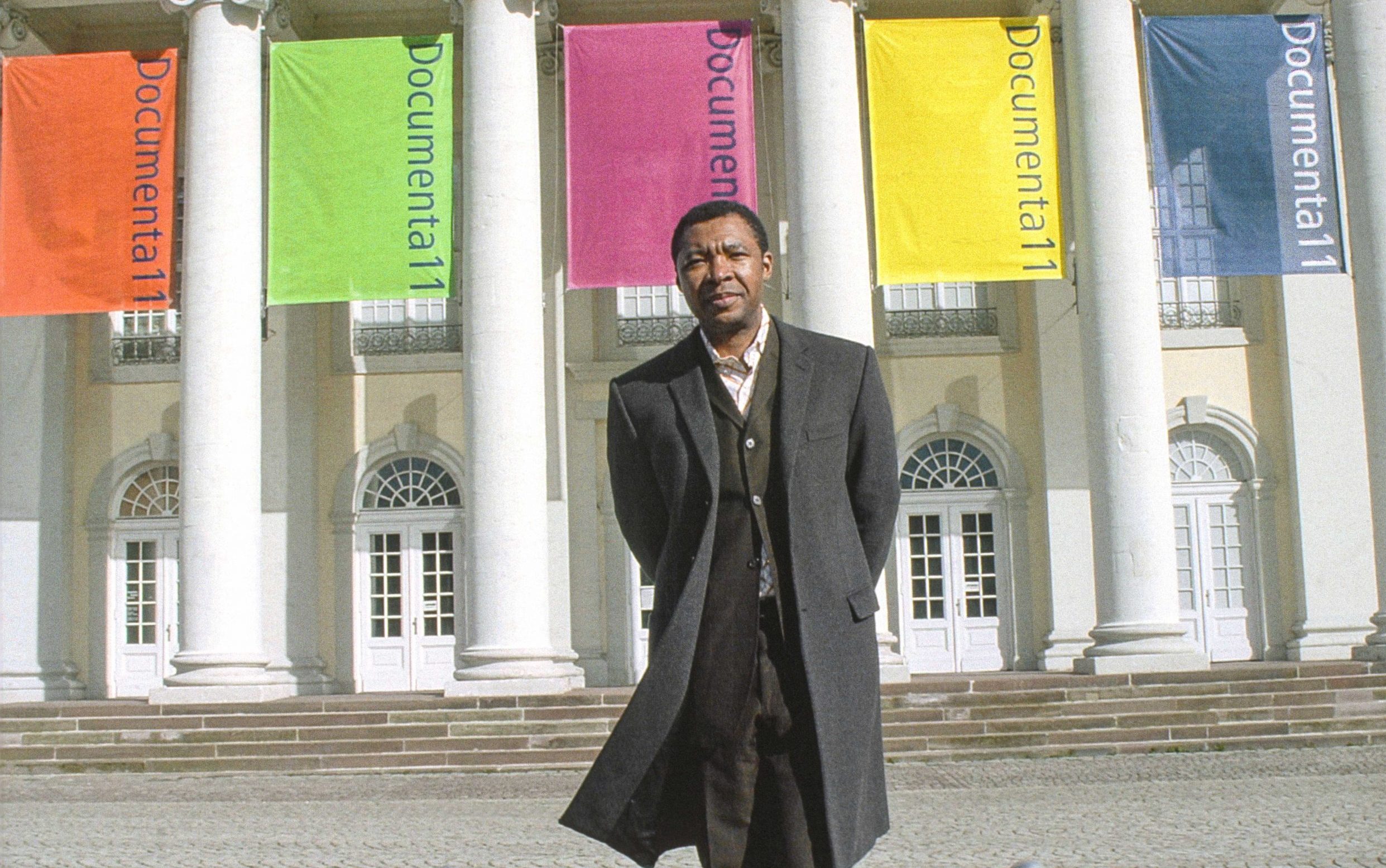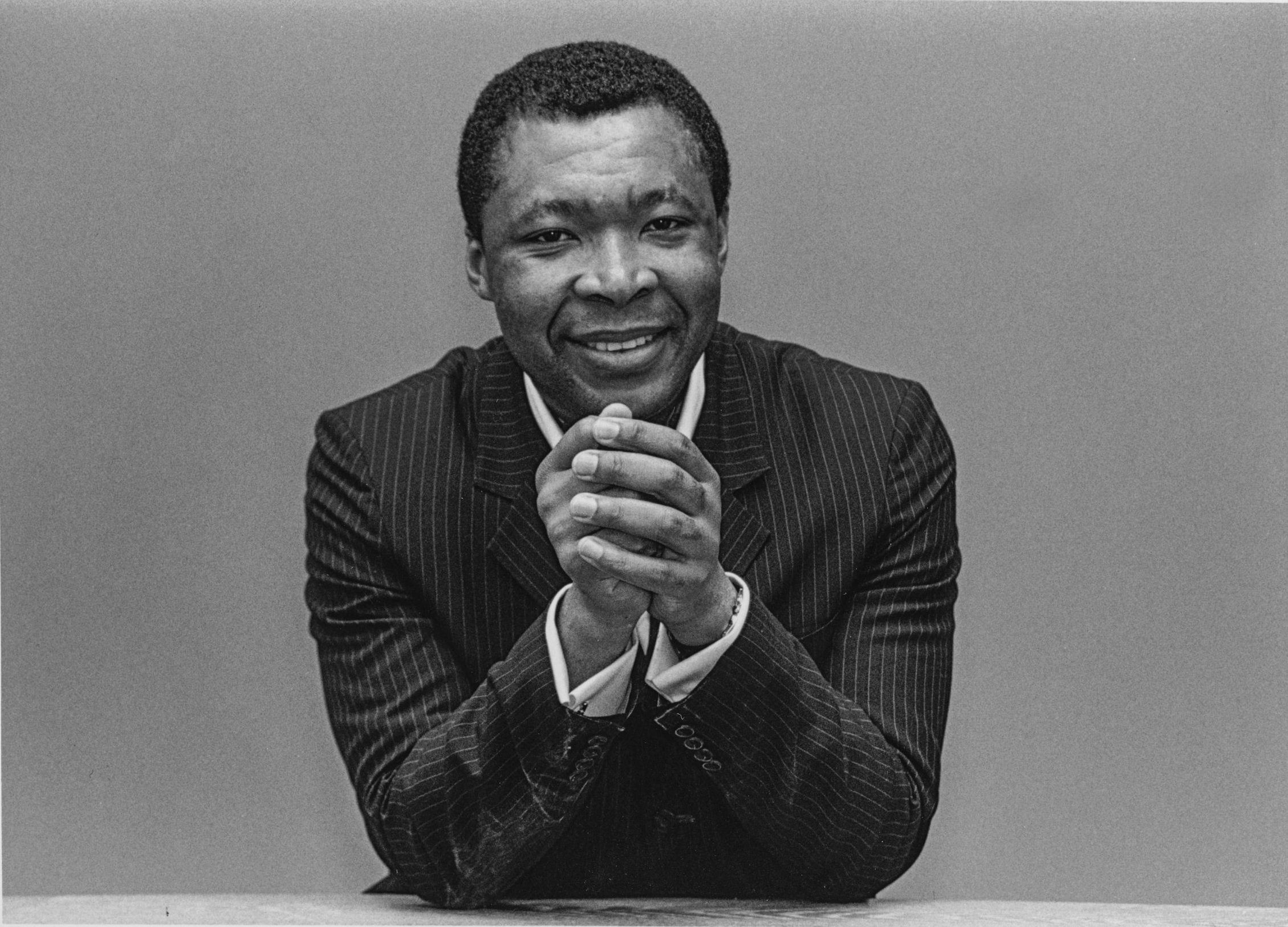Preface of Documenta11_Platform5: Exhibition Short Guide

© documenta archiv / Photo: Ryszard Kasiewicz
Almost fifty years after its founding, Documenta finds itself confronted once again with the specters of yet another turbulent time of unceasing cultural, social, and political frictions, transitions, transformations, fissures, and global institutional consolidations. If we take on board these events in all their historical significance, along with the forces that are today reshaping the values and views of our world, the prospects for contemporary art and its position in producing and explicating critical models of interpreting the features of the contemporary imagination could not be more demanding and daunting.
How do we make sense of these rapid changes and transformations, which call upon all practitioners for new, inventive models of enabling trans-disciplinary action within the contemporary global public sphere? The challenge of making a meaningful articulation of the possibilities of contemporary art in such a climate, as well as the disciplinary, spatial, temporal, and historical pressures to which it has been subjected, represent the diagnostic, deliberative process out of which the full measure of Documenta11 has been engaged. The constitutive conceptual dimension of Documental11 is grounded in the formulation of a series of five Platforms of public discussions, conferences, workshops, books, and film and video programs that seek to mark the location of culture today and the spaces in which culture intersects with the domains of complex global knowledge circuits. The five Platforms take up a number of questions which we deem of critical relevance to the intellectual project of Documenta11. From Platform 1, Democracy Unrealized; Platform2, Experiments with Truth: Transitional Justice and the Processes of Truth and Reconciliation; Platform3, Créolité and Creolization; Plafform4, Under Siege: Four African Cities—Freetown, Johannesburg, Kinshasa, Lagos; to Plafform5, Exhibition, Documenta11 has tried to spell out its statement of intent, which is to enlarge the space of the critical debates of contemporary artistic discourse today.
In a sense, then, Documenta11's five Platforms, in a paradoxical but necessary critical move, begin with a series of deterritorializations which not only intervene in the very historical location of Documenta in Kassel but also emblematize the mechanisms that make the space of contemporary art one of multiple ruptures. Beginning in Vienna on March 15, 2001, then to New Delhi, Berlin, St. Lucia, Lagos, and ending in Kassel on September 15, 2002, the Platforms unfold over the course of eighteen months across continents, cities, and disciplines; they oscillate between procedures marked by debates that come out of the deep historical experience of societies undergoing change and renewal. It would have been a catastrophic intellectual presumption to make light of the questions that have emerged from these historical experiences, and not to take them on board as a challenge in terms of how contemporary art and its various enterprises can move forward in a dialectical relationship with global culture at large.
Throughout Documenta11's preparation I have had the exceeding good fortune of working with a team of six brilliant and committed colleagues in shaping every single facet of this project. That I have learned more from this project working with Carlos Basualdo, Ute Meta Bauer, Susanne Ghez, Sarat Maharaj, Mark Nash, and Octavio Zaya is surely to be taken as the supreme understatement. Ours have been the most lively, generous, critical, inquisitive, and enabling intellectual environment that any professional can ever hope for. Documenta11 is a tribute to their steadfast, careful analysis of the difficult task of making something meaningful and durable. A project of this magnitude easily disqualifies the notion of one singular author, yet that has been the role the Artistic Director has been given. I am immensely grateful to the city of Kassel, especially to his honor Georg Lewandowski, the Mayor of Kassel, and to the Supervisory Board, for the opportunity to serve as the Artistic Director in what is a legendary institution. My gratitude also goes to Bernd Leifeld, the Managing Director of Documenta, who has worked closely and tirelessly with me and has been steadfast in his unwavering support for the full scope of Documenta11.
I am deeply indebted to the entire team of Documenta11, all of whom have worked without stop and with incredible commitment, professionalism, generosity, enthusiasm, and colleagueship. While the failures are mine indeed, the success of this project is a testament to their hard work. In particular I would like to express my gratitude to Angelika Nollert (Project Manager), Markus Muller (Director of Communication), Gerti Fietzek (Managing Editor), Winfried Waldeyer (Technical Director), and to Andreas Seiler for his exacting diligence in keeping all affairs of the exhibition proj-ect office working seamlessly.
I would like to register my deepest thanks to my daughter Uchenna and to my wife and partner Muna El Fituri for covering many other duties which would have been difficult to juggle with the challenges of this task. My thanks also to all the supporting institutions, lenders, and sponsors, and to the audiences of the various Platforms. Finally, I wish to thank all the artists and speakers for making us a gift of their artistic and intellectual labor.
Okwui Enwezor. Vorwort I Preface. In: documenta und Museum Fridericianum Veranstaltungs-GmbH (ed.). Kurzführer / Short Guide. Documenta11_Platform5: Ausstellung/Exhibtion. 2002. Hatje Cantz Verlag. Ostfildern-Ruit. pp. 6-7.
